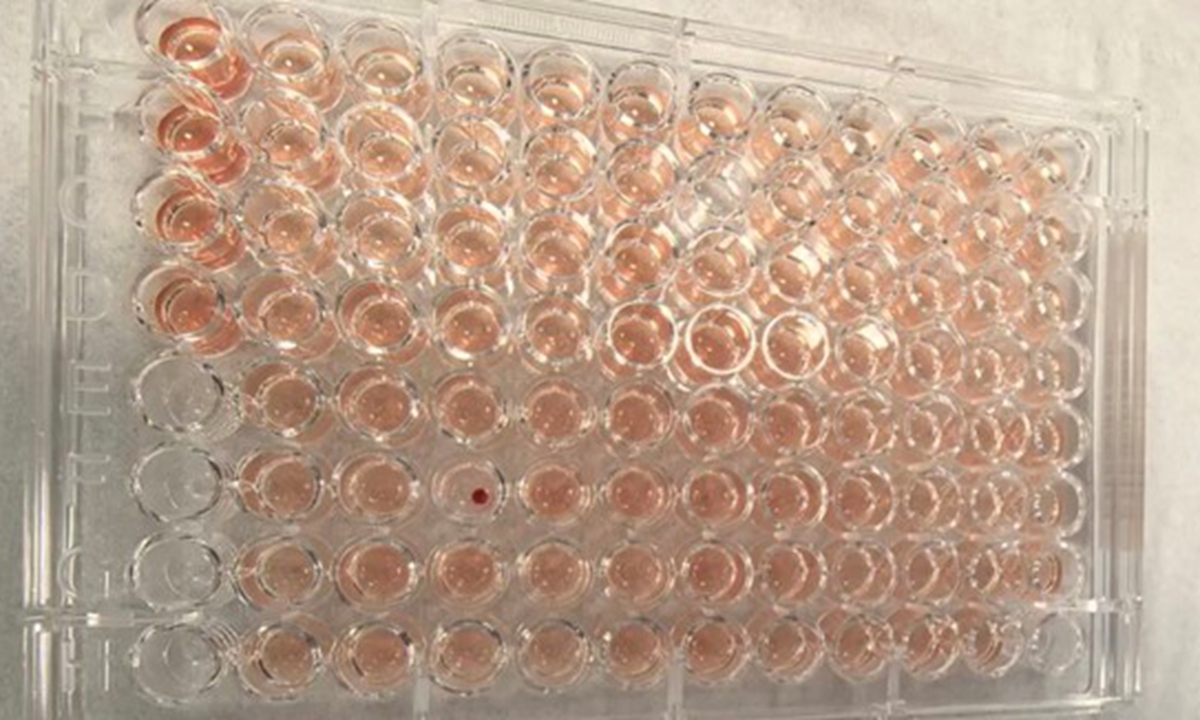
The hemolysis test targeted at detecting Jk(a-b-) blood type shows a negative result for the first time. Photo: the official WeChat account of Shunde central blood station
An extremely rare Jk(a-b-) blood type—known as "diamond blood," which is over a hundred times rarer than the "panda blood" (Rh-negative blood), was discovered by the testing department of Shunde central blood station in Foshan, South China's Guangdong Province, reported by People's Daily, citing the official WeChat account of the blood station.
This is the first such case detected since the station began screening for the Jk(a-b-) blood type using the urea hemolysis test in 2024, with no previous records of this blood type reported in Shunde, according to the report.
"When it comes to blood types, most people only know A, B, and O, but in fact 43 independent blood group systems have been identified in humans," said a staff member from the Shunde central blood station.
The detected "diamond blood" belongs to a type within the Kidd blood group system. It results from a mutation in the SLC14A1 gene on human chromosome 18, resulting in the complete absence of Jkᵃ, Jkᵇ, and Jk3 antigens on the surface of red blood cells, the report said.
This is akin to a special pass missing certain identifiers, which alters the genotype—and it is the key distinction between "diamond blood" and common blood types.
"This discovery has little impact on the blood collection and other operational processes of the blood station, but its clinical value is quite significant. It can provide more guidance for transfusion medicine," a staff member from the blood station told the Global Times on Thursday.
The station said the probability of having "diamond blood" among the Chinese population is only 0.002 percent to 0.02 percent. This makes it over 100 times rarer than the better-known "panda blood" — a type whose occurrence rate ranges from 0.2 percent to 0.5 percent.
The station added that including "diamond blood" donors not only fills a local gap in screening for this rare blood type in Shunde but also provides a critical reserve for precision transfusions in Shunde and nearby areas.
Given the rarity of "diamond blood," finding a match is extremely difficult, said the station. For patients who have developed anti-Jk3 antibodies, transfusion with the same blood type is required—one key reason why the station has added this blood type into the local and Guangdong provincial rare blood type database.






